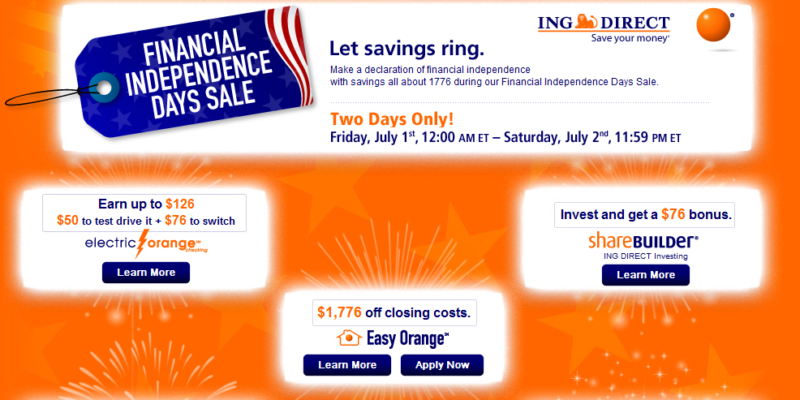- "The best way to spend your money is to spend it on time, not on stuff." http://su.pr/2tr5iP #
- First bonus by stock options today. Not sure I'm impressed. #
- RT @chrisguillebeau: US border control just walked the train asking "Are you a US citizen?" Native American guy says: "One of the originals" #
- @FARNOOSH My credit score is A measure of my integrity not THE measure. in reply to FARNOOSH #
- I'm listening to a grunge/metal cover of "You are my sunshine" #
- There's something funny about a guy on reality TV whining about how private he is. #LAInk #
Resolving Legal Disputes

Dispute resolution has to do with the impartial rectification of conflict between individuals or parties. More specifically it is the utilization and execution of methods that are designed to resolve conflicts. In a case in which there is a dispute between people or groups, often times a third, neutral, party is selected to be an impartial representative for the disputing persons. Although dispute resolution can refer to resolutions both in and out of the court, it mainly applies to disputes that are settled outside of the legal framework of the judicial system.
Two of the most common types of dispute resolution are known as adjudicative and consensual. While adjudicative resolution requires a third party to mediate the outcome, such as a judge or jury, and usually involves some form of litigation, consensual resolution is the attempt to solve the issue between the two disputing parties without involving a third party, although at times a neutral arbitrator will be selected to preside over the case, though they will often be there not so much for authoritative purposes but more as a council to keep things fair. There is also a third upcoming type of dispute resolution, online dispute resolution, or ODR, which has become more popular in recent years with the rise of the internet’s prominence in daily life, but it is mainly the application of traditional consensual resolution practices, only adapted to the online environment.
Many disputes can be solved simply through adherence to the law, however, sometimes issues arise that the legal structure isn’t equipped to handle, and so a third party is chosen to resolve the conflict. These types of conflict fall within the jurisdiction of the law and so will be relegated to the political system for arbitration. Judicial resolutions are conflicts that will be, hopefully, settled by the court. In the United States, this is often the case with dispute resolution. This form of resolution usually involves litigation. This is the use of outside individuals to argue for or against the disputing parties. In a courtroom, the lawyers are the litigators, while the judge and jury listen to the arguments in order to come to their decisions.
Extrajudicial resolution is non-court settlement of conflict. Also known as alternative dispute resolution, or ADR, this is what people are usually referring to when discussing dispute resolution. ADR is usually more efficient, cost effective, and less time consuming than judicial resolutions. Extrajudicial resolution concerns various types of ways to settle conflict. These include arbitration and mediation. In arbitration neutral individuals will listen to both sides of an argument and render a decision based on evidence. Unlike the court systems, this proceeding doesn’t necessarily include a binding agreement with the parties.
Mediation is used in extrajudicial resolution as a way to open a dialogue between conflicting parties. The idea is to use a trained neutral third party in order to come up with unique solutions to solve the issue. A mediator is trained to be both an effective negotiator as well as an excellent communicator. A mediator is like a judge in that they cannot take sides, and they do not give legal advice either. Their decisions are not obligatorily followed, though they tend to be followed since the mediators are trained to make decisions that benefit both parties.
The techniques used in dispute resolution can be used both in and outside of the court room. It is often used by individuals who wish to speed up the process by not having to get into the political system. However, they are useful in many cases where individuals wish to come to the most beneficial agreement for all the parties involved.
Friends and Acquaintances
“Friends help you move. Good friends help you move bodies.”
-unknown
Some people have dozens of friends. I’m not that guy.
I have 6.
Everybody in the world can be divided into 4 categories.
- Strangers. A xenophobe’s nightmare. These are the people you don’t know, whether they are passing you on the sidewalk, or newborns on the opposite side of the world.
- Acquaintances. These are the people you’ve met, mostly in passing. They tend not to have much effect on your life. You may pass a friendly bus ride in conversation, but it’s nothing that sticks. A waitress, the clerk at the store, a friend’s latest date; these are the people you interact with for just a moment and rarely think about further.
- Friendlies. Most people call these folks friends. I don’t. I’m friendly with them, hence the name, but it’s not true friendship. Often, they are either my wife’s friends, or my friends’ wives. Sometimes, they are a friend of a friend that I only see at parties, or a coworker that I get along with, but never see outside of work. We’re friendly, but not obliged. I may help with some things, but it’s not necessarily a priority. I’ll go to a funeral, but probably won’t help plan it.
- Friends. To me, calling someone a friend is a big deal. I’m willing to do a lot for my friends. They are able to command large amounts of my time, and ask any number of favors. If needed, I’ll open my home or help demolish their’s. Loyalty, honesty, trust, respect, and companionship are all a part of my definition of a friend. If a friend needs help, I’ll come running. In return, I expect the same.
Family tends to fall into the same analogous categories.
It sounds cold, but I hesitate to let people graduate into the final category. My wife used to try to “set me up” with people that she thought I’d like to be friends with, thinking I was sad to have so few friends. It took years for her to realize that I was happy. It’s a matter of quality over quantity. Most of the friends I have, I’ve had for 10 years or more. I’ve known each of them for at least 5 years, not that time is a requirement.
Moving people into the “friends” category is a lot like dating. You get along, so you invite the potential friends out for a drink, one on one. You feel them out to see if they are compatible. You meet their families, share some food, build some history. If it all works out, eventually, you consider them a true friend, even if you couldn’t mark the date of the transition.
You wouldn’t marry everyone you date, so why would turn everyone you basically get along with into a friend?
Do you have a lot of friends? What marks friendship for you?
Regret
There comes a time when it’s too late to tell people how you feel.
There will come a day when the person you mean to talk to won’t be there. Don’t wait for that day.
“There’s always tomorrow” isn’t always true.
ING Rocks

I just got an email from INGDirect. To celebrate Independence Day, they are having a sweet, sweet sale.
You can:
- Open a checking account and get between $50 and $126 for doing so.
- Open a Sharebuilder account and get $76 to start buying stocks.
- Get $1776 knocked off the closing costs of a mortgage.
- Get $76 in a new IRA, to give you a little boost for retirement.
Take advantage of all of that and you’ll get $2054 in cash or discounts.
Seriously, this deal rocks. If you don’t have an INGDirect account, get one. There are no overdraft fees and no monthly fees.
The sale ends tomorrow at midnight, so hurry.
Happy Form
If you don’t know why you are hear, please read about the 21 Day Happiness Training Challenge.



